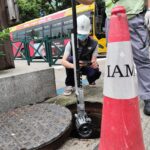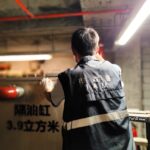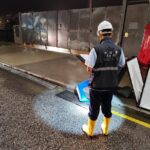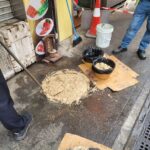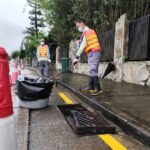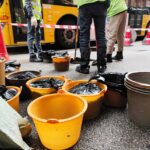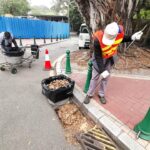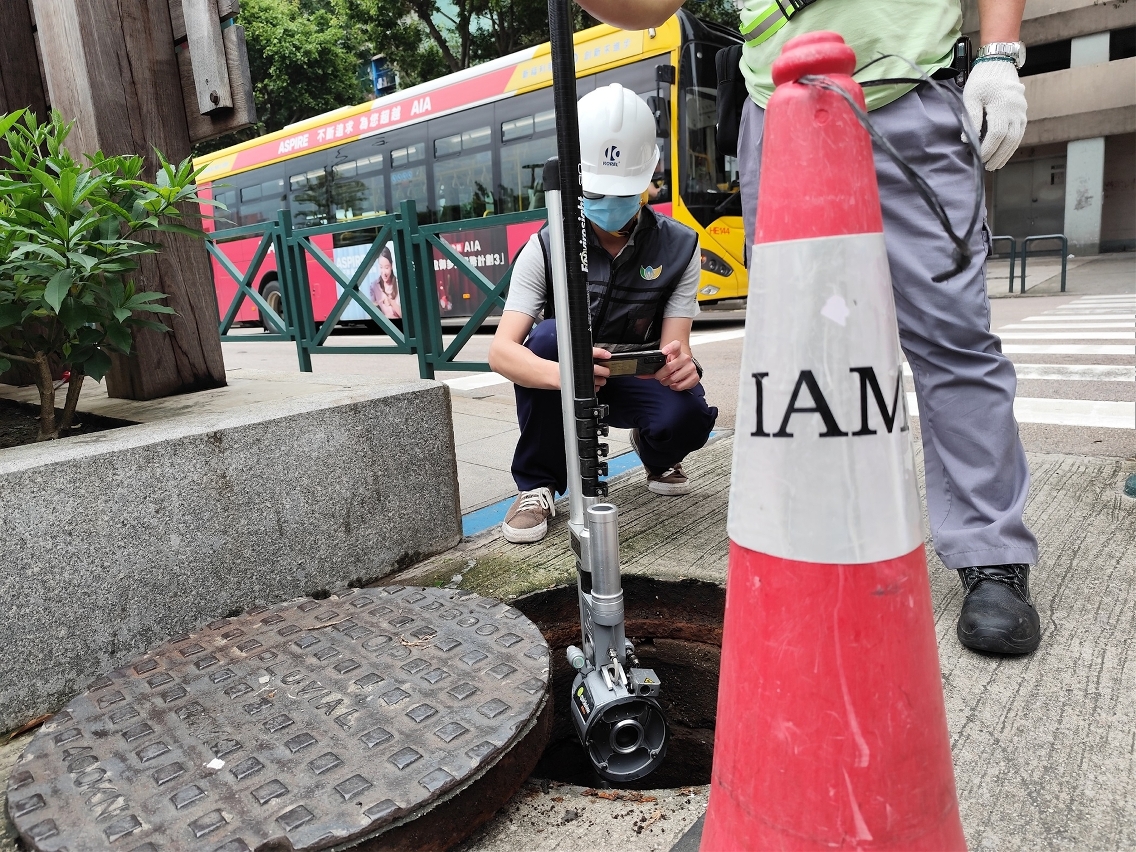 IAM clears and maintains sewers continuously before typhoon and rainy season to reduce risk of flooding
IAM clears and maintains sewers continuously before typhoon and rainy season to reduce risk of flooding
As the typhoon and rainy season is approaching, the Municipal Affairs Bureau (IAM) clears and maintains sewers continuously in various districts with a focus on stepping up inspections in areas susceptible to floods. IAM also continues to carry out inspections of food and beverage establishments and construction sites jointly with relevant departments in order to check the interception and filtration facilities and initiate prosecutions against violations of regulations. In times of adverse weather, IAM will initiate rainstorm emergency response mechanism and adopt a series of contingency measures to accelerate drainage of rainwater. IAM appeals to the society to jointly protect the drainage networks to safeguard the normal operation of the drains.
IAM handles the drainage networks in areas susceptible to floods with priority. During regular inspections and clearance of drainage networks, solidified grease and cement grout are often found to obstruct the operation of sewers. This mainly involves food establishments which have not installed proper grease interceptors or have not cleared them regularly, causing the solidified grease to block the sewers, and illegal discharge of waste of construction sites, discharging untreated wastewater or construction waste to the public drainage networks. In the first quarter, IAM carried out operations continuously with relevant departments and inspected the grease interceptors of food and beverage establishments for 330 times. Over 20 written records were issued to food establishments due to violations of the regulations. Inspections of the construction sites in various districts were carried out for 150 times and about 10 written records were issued. IAM appeals to the public and businesses to refrain from pouring waste, grease and other substances to public drains in the streets. The sectors are required to step up clearing of grease interceptors and wastewater filtration equipment in construction sites. Cement grout and other construction waste or grease must not be discharged to the public sewers. In addition, IAM reminds businesses with ground level storefronts that they must not place cardboard, Styrofoam boxes and other objects arbitrarily on the streets to prevent them from washing away and blocking manholes during rainstorms and affecting the normal discharge capabilities of sewers.
Before the approach of typhoon and rainy season, IAM carries out inspections in low-lying areas and locations where floods have occurred previously, and clears sewers, rainwater catch pits, open channels and other facilities in various districts in advance. IAM also steps up monitoring and clearance of the various main rainwater pumping stations. From January to March this year, IAM cleared over 55,000 metres of sewers and unclogged catch pits for over 2,500 times, in addition to completion of records and analysis of CCTV footage of about 9,000 metres of sewers.
Upon the approach of a typhoon or rainstorm to Macao, priority is given to inspections and clearance of drainage facilities in low-lying areas susceptible to floods. If the Yellow Rainstorm Warning Signal or above is issued by the Macao Meteorological and Geophysical Bureau, IAM will activate the rainstorm emergency response team mechanism. Pumps will be turned on remotely for drainage of rainwater according to the real-time height of sea tides; staff will be sent to inspect the operation of rainwater pumping stations; pumps will be adjusted and controlled for speedy flood relief depending on the situations. When Tropical Cyclone Signal no. 8 or a rainstorm warning signal is issued, IAM will send staff to be stationed at all times at major drainage pumping stations. The outsourced emergency drain clearance personnel will assist in the inspection and emergency clearance work in various districts throughout Macao. After the typhoon, IAM will pool human and outsourced resources to focus on clearance of sewers in flooding districts.
Currently, the construction works of the pumping station in Bacia Norte do Patane are being carried out in order. The construction works are expected to be completed in July this year and the adjustment and trial stage will commence. After the pumping station enters into service, it will work in tandem with the rainwater pumping station in Lam Mau to enhance the overall rainwater drainage capacity in the district. Furthermore, IAM has also launched the drainage improvement project of Old Taipa Village in phases. The invitation of tenders of the construction works of the rainwater pumping station in Avenida dos Jogos da Ásia Oriental of the first phase of the project has been carried out. The new rainwater pumping station will increase the drainage capacity and alleviate the flooding in the district.


